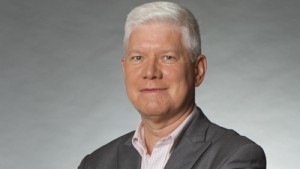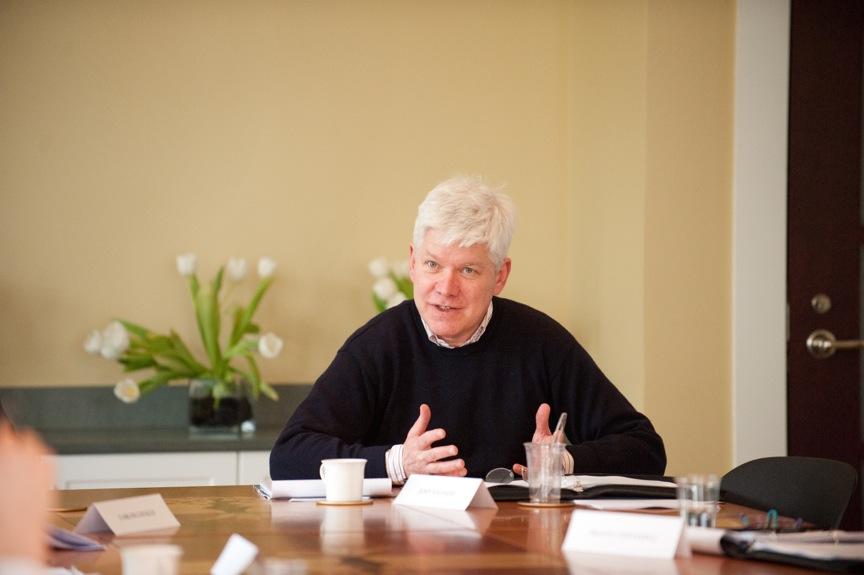By Andrea Gaul
Student newswriter
Dr. John J. Haldane, the Baylor professor recently named one of the 50 most influential living philosophers by TheBestSchools.com, will teach a new course titled “Philosophy and Public Policy” in the Spring 2017 semester.
“My interest lies in getting philosophers to be interested in policy questions, but also to get those in politics, journalism, and other related fields to be interested in the philosophical aspects of their own work,” Haldane said.
While Haldane, Distinguished Professor of Ethics and the J. Newton Rayzor Sr. Distinguished Professor of Philosophy, is in his first official semester at Baylor, the renowned Scottish philosopher has already discovered value in joining the Baylor family.
“I like very much the Baylor ‘project,’” Haldane said. “To combine a serious commitment to teaching, but also to scholarship and research, while also remaining true to Christian vocation and commitment — that combination is increasingly rare.”
 For more than 20 years, Haldane directed the Centre for Ethics, Philosophy and Public Affairs at St. Andrews University in Scotland. However, his interest in how philosophy and public policy relate to one another has not been confined to simply running the center. Haldane has been drawn into the “public domain” several times, which is evident in his involvement with media outlets such as the BBC, The London Times and The Guardian.
For more than 20 years, Haldane directed the Centre for Ethics, Philosophy and Public Affairs at St. Andrews University in Scotland. However, his interest in how philosophy and public policy relate to one another has not been confined to simply running the center. Haldane has been drawn into the “public domain” several times, which is evident in his involvement with media outlets such as the BBC, The London Times and The Guardian.
“My hope is that students taking this course will gain two things,” Haldane said. “First, an appreciation of both the opportunities and the importance of bringing philosophical reflection to public policy questions, and second, the ability to approach public policy questions from a philosophical perspective.”
When asked about his observations regarding the way that philosophy is perceived and studied in the United States compared to in Scotland, Haldane has positive reflections on the United States.
“I would say that historically, there has in the U.S. been an appreciation of the role of philosophy, partly through the liberal arts college tradition, and partly through the tradition of public intellectual commentary,” he said.
Haldane does express some regret, however, as to the way philosophers themselves are now regarded in this country and around the world.
“Philosophers don’t enjoy the publicly elite position they used to,” he said. “They have to make their case to be heard alongside historians, political sciences, et cetera. They don’t get a ‘free ticket,’ as it were.”
 In the same way, Haldane has observed differences between the U.S. and Scotland regarding public policy and the general political climate in each country.
In the same way, Haldane has observed differences between the U.S. and Scotland regarding public policy and the general political climate in each country.
“This is a particularly low period in American politics,” Haldane said. “It is marked by a kind of ‘tribal division,’ a kind of hostile, destructive rhetoric — by a loss of any sense of either reasonable disagreement or civic friendship.”
And Haldane believes that no matter the outcome of the upcoming election, the ‘acidity’ of these divisions is likely to increase.
“People are going to have to work very hard to rebuild a public discourse, a sense of common citizenship,” he said.
While Haldane is not a United States citizen, he does have a word of advice to young American voters who are wondering how to approach the controversial upcoming election.
“I would say, beyond particular policies that you may favor or oppose, have a regard for the business of government,” Haldane said. “This hard time will pass, so the question becomes, where will we stand in four years time? We must consider what will be the quality of politics in the coming years and what would be least damaging.”
—


Thanks a lot. You wrote an excellent article here. I respect your hard work. I would love to read more in future for sure. Keep publishing more articles like this. Thank You!